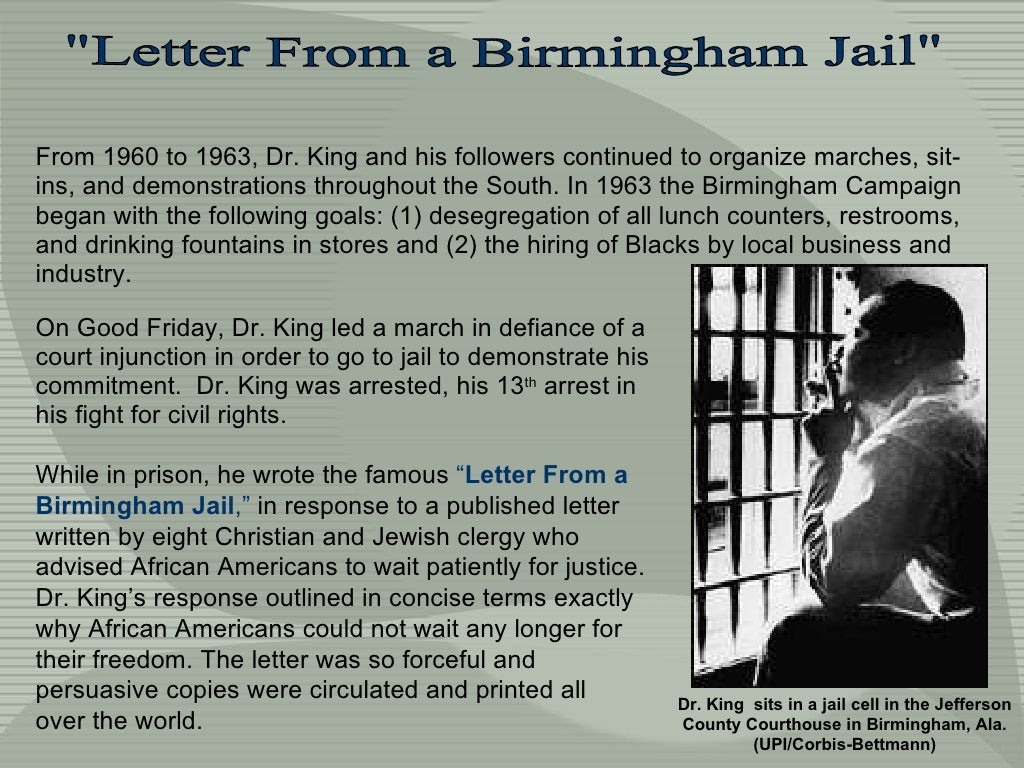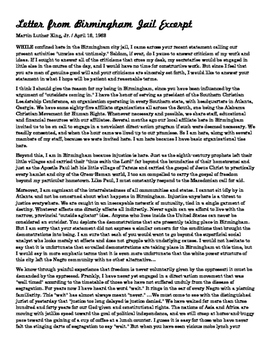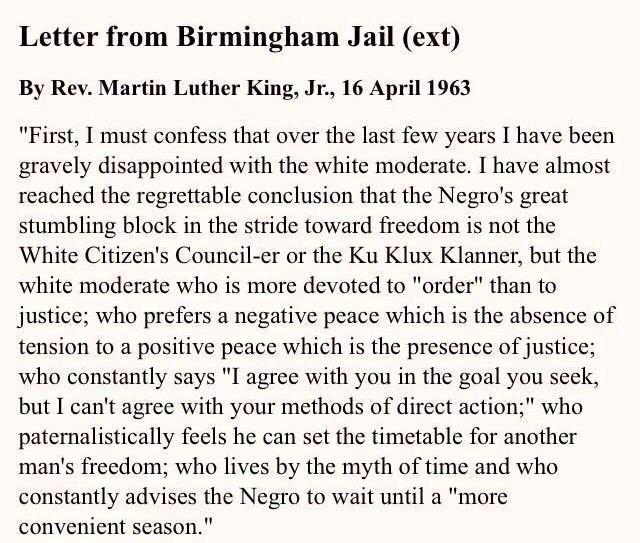

All of these factors influence each other to shape rhetoric, which Bitzer describes as, “pragmatic it comes into existence for the sake of something beyond itself” (3), with Martin Luther King’s Letter From Birmingham Jail being a shining example.

Lastly, the exigence of a rhetorical piece is the external issue, situation, or event in which the rhetoric is responding to.

The audience of a rhetorical piece will shape the rhetoric the author uses in order to appeal, brazen, or educate whoever is exposed.

and may encompass the audience, as seen while analysing Letter From Birmingham Jail. Constraints bring light to the obstacles this rhetoric may face, whether it be social, political, economical, etc. There are three main considerations to make while analysing a rhetorical situation: the constraints, the exigence, and the audience. Analysing a rhetorical situation clarifies why a text was created, the purpose in which it was written, and why the author made specific choices while writing it. In sum, all rhetoric has an external situation in which it is responding to. Lloyd Bitzer describes rhetorical situation as, “a complex of persons, events, objects, and relations presenting an actual or potential exigence which can be completely or partially removed if discourse, introduced into the situation, can so constrain human decision or action to bring about the significant modification of the exigence” (6). Martin Luther leading peaceful Birmingham protest, AP News While this fight had been raging for nearly 10 years, the release in 1963 was shortly followed by the Civil Rights Act in 1964. In Letter From Birmingham Jail, Martin Luther King responds to the subjectivity of law and the issue he paramounts by using precise and impactful rhetoric from inside of his jail cell. had, perhaps, the most encompassing and personal rhetorical situation to face in American history. As the Civil Rights movement of the 1950’s and 1960’s unfolded, Martin Luther King Jr.


 0 kommentar(er)
0 kommentar(er)
